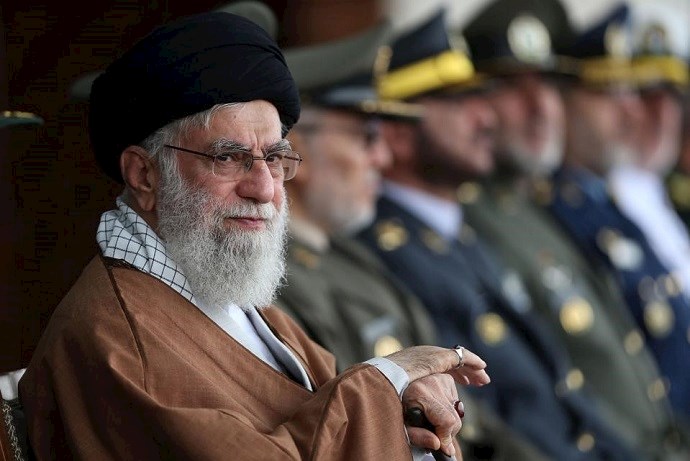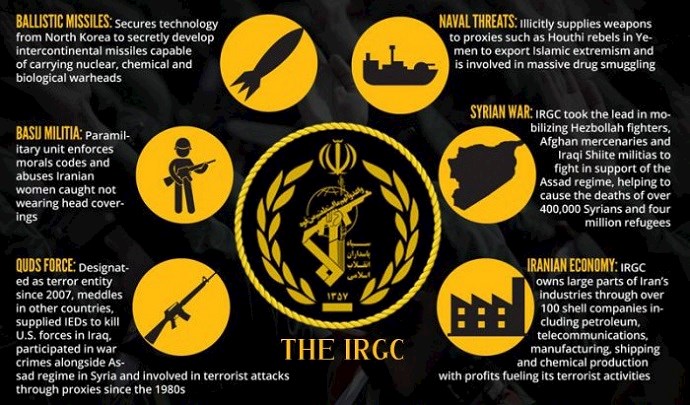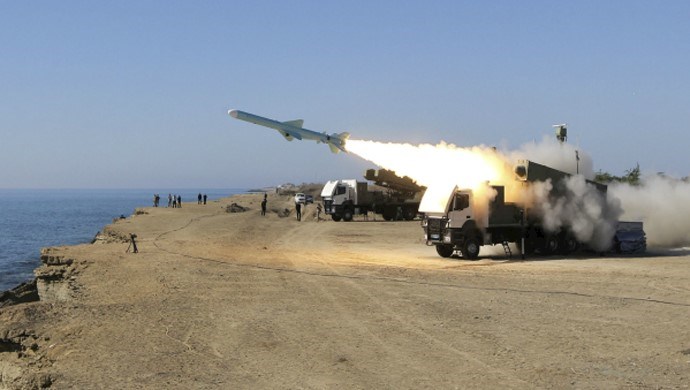Analysis by PMOI/MEK
Iran, August 31, 2020—The international community is at a critical juncture on Iran. World powers will have to decide whether they will allow an arms embargo against the Iranian regime to expire in October, or they will continue to deny Tehran open access to advanced weaponry. What are the real consequences of allowing the leading state-sponsor of terrorism and fundamentalism to deal in arms?
Alireza Jafarzadeh, deputy director of the National Council of Resistance of Iran (NCRI) US Representative Office, explained in a webinar debate on Wednesday, August 26, hosted by the Iranian opposition in Washington that it is imperative for global peace and security to reimpose all United Nations sanctions on the mullahs’ regime ruling Iran.
In the same event, Jafarzadeh presented a new book by the NCRI, IRAN: The Imperative to Reimpose UN Sanctions, which contains details about the rogue behavior of the Iranian regime in the region, and its use of terrorism as part of its foreign policy.
Empowering the Revolutionary Guards (IRGC)
According to the NCRI report: “In a 2014 internal report exposed by the NCRI in September 2015, the IRGC [Revolutionary Guards] explained the Iranian regime’s Supreme Leader Ali Khamenei’s decision to enter into nuclear talks as a strategy of diversion, intended to direct the world’s attention solely onto the nuclear issue to the advantage of the IRGC’s regional aggression. Soon after the nuclear talks became serious in 2013, the P5+1 turned a blind eye when the criminal regime of Bashar Al Assad, with the IRGC’s backing, used chemical weapons to massacre the Syrian people.”

Iranian regime’s Supreme Leader Ali Khamenei
Over the years, Khamenei has emphasized the role of the IRGC as the pillar and main guarantor of the regime’s survival. In the years leading up to the JCPOA, the IRGC made significant progress in Yemen, Bahrain, and elsewhere under the command of Qassem Soleimani.
Shortly after the JCPOA was signed, Khamenei called for further empowerment of the IRGC “We should greatly strengthen the pillars of the Revolution and the revolutionary mindset. All should value the IRGC. Weakening the Revolutionary Guards and unrelated statements against it are groundless and please the enemy… The IRGC is a great divine gift for the country,” Khamenei said.
Under Khamenei’s direction, the IRGC immediately and drastically stepped up its terrorist activities, ballistic missile testing, illegal weapons purchases, and cyberattacks throughout the region and the world. This was largely enabled as a result of the financial assets made available to the regime post JCPOA.
Weaknesses to overcome
NCRI’s report also explained how the IRGC and the Army of the clerical dictatorship seek to exploit the lifting of the international arms embargo to resupply their arsenal with modern weaponry to advance their aggressive objectives and warmongering.
The book reveals some of the advanced weaponry and equipment that the Iranian regime seeks, including advanced warplanes and helicopters, anti-aircraft defense systems, modern tanks like the Russian T-90, submarines, aircraft carriers, speedboats, as well as surface-to-surface missiles.
It is clear then that the lifting of the arms embargo against the regime will strengthen its military power, which it will use to export terrorism and warmongering in the region, further threatening world peace and security.
The regime’s military strategy
Based on information received from inside Iran, the regime has prepared and begun executing plans for an uplift in Tehran’s military and political strategy.
Under the direct order of Khamenei, the regime is no longer focused on a defensive posture; all funding and priorities are shifting toward the IRGC’s “target centric” conflicts.

How the IRGC spreads violence and terrorism.
It is important to note that Khamenei’s strategy to restructure his regime’s military might began immediately after the signing of the JCPOA in anticipation for the lifting of the arms embargo in 2020.
In November 2019, regime President Hassan Rouhani declared, “For years [before the JCPOA], the purchase of weapons by Iran was prohibited by UN resolutions; the purchase of weapons by other countries from Iran was also prohibited. According to the JCPOA and UNSC Resolution 2231, by next year the arms embargo on Iran will be lifted and we can easily buy and sell weapons. This is one of the key goals of the JCPOA agreement.”
Iran’s arms embargo, a necessity for global peace and security
Speaking at an NCRI webinar on August 19, Ambassador Robert Joseph, former Under Secretary of State for Arms Control and International Security that without the embargo, Iran would gain access to advanced capabilities to further its regional aggressions.
Amb. Robert Joseph
It is self-evident that continuing the arms embargo is necessary for the U.S. and the international community. Without the embargo, Iran would gain access to advanced capabilities to further its regional aggressions.#Iran#UNSChttps://t.co/ZZ9vF0xikE
— People’s Mojahedin Organization of Iran (PMOI/MEK) (@Mojahedineng) August 19, 2020
“Failing to extend the embargo would be the end of any prospect for establishing multilateral sanctions in the future. Failure to lead and prevail on this issue would have negative consequences for the U.S. It could also have wider implications for the UN Security Council,” Ambassador Joseph said.
Also, Mrs. Maryam Rajavi, the NCRI’s President-elect emphasized that an arms embargo against the religious fascism ruling Iran is indispensable to regional and global peace and security. The regime’s unimpeded purchase and sale of weapons will have no result other than terrorism, warmongering, and export of fundamentalism.
An #ArmsEmbargo against the religious fascism ruling #Iran is indispensable to regional & global peace & security. The regime’s unimpeded purchase & sale of weapons will have no result other than #terrorism , warmongering & export of fundamentalism.
— Maryam Rajavi (@Maryam_Rajavi) August 14, 2020





